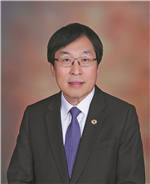Today marks International Museum Day, an annual event created in 1977 by the International Council of Museums.
In the days leading up to May 18, museums all over the world plan creative activities related to the year's theme. The day itself is an occasion for museums and the public to connect and support each other, and highlights the important role of museums as institutions dedicated to society and its development.

The theme of IMD 2022, "the power of museums", focuses on efforts to achieve sustainability, innovations in digitalization and accessibility, and contributions to community-building through education. The development of high-quality museums is given the highest priority in China and this year's theme touches on important aspects of that development.
From a sustainable cultural perspective, museums should identify themselves as significant components of the national cultural pool and contribute to the creation of new culture by exploring the contemporary value of their collections.
From a sustainable environmental perspective, museums can help connect problems concerning the environment with today's critical issues and inspire people to reflect.
From a global perspective, museums should embrace their role in the UN sustainable development goals initiative and act accordingly.
As part of the government's policies on carbon neutrality and reaching peak carbon dioxide emissions, China last year launched a nationwide energy saving and emissions survey of museums to promote green and low-carbon development in the sector.
In recent years, integrated media and digitalization have been the most frequent buzzwords in the sector, as the improvement of digital services has become an important strategic choice for most museums. Based on the experience and achievements of the "Internet+ Chinese Civilization" Three-Year Action Plan launched in 2016, the country's museums are now able to provide more online resources of a higher quality.
Following the government's guidelines on promoting museum reform and development, which was published last year, many are accelerating the construction of smart museums, developing cloud exhibitions and cloud education, and building a system that promotes their online activities as well as on-site ones. The deepening integration of museums and digital technology is reshaping the profile of museums around the world.
The strengthening of relationships with the communities from which their collections originate and with the communities they serve is another worldwide phenomenon in the sector.
Accessibility, inclusiveness, public participation, reflection and the sharing of knowledge have been repeatedly emphasized over the last three years, both in international discussions and in the revision of the ICOM's code of ethics.
In addition, there is an increasing consensus among Chinese museums to develop innovative community services to integrate cultural heritage into daily life, and efforts to help people enjoy museums and make visiting them a lifestyle choice are already underway.
The unique power of museums in the service of society and social development is on display, not only in China, but also around the world.
An Laishun is a professor at Shanghai University, vice-president of the International Council of Museums and a member of the 13th National Committee of the Chinese People's Political Consultative Conference.
Cheng Yuezhu contributed to this story.
